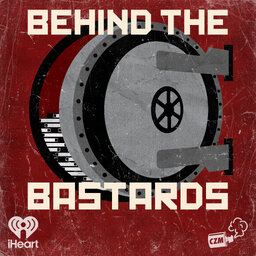Mia Wong is joined by Robert Evans to discuss Nobusuke Kishi.
FOOTNOTES:
- Machiavelli’s Children Leaders and Their Legacies in Italy and Japan by Richard J. Samuels
- Chinese Comfort Women Testimonies from Imperial Japan’s Sex Slaves by Peipei Qiu, with Su Zhiliang and Chen Lifei
- Yakuza Japan's Criminal Underworld by David E. Kaplan and Alec Dubro
- Asian Labor in the Wartime Japanese Empire: Unknown Histories By Paul H. Kratoska
- The Prime Ministers of Postwar Japan, 1945-1995 Their Lives and Times Edited by Akio Watanabe
- Absolute Erotic, Absolute Grotesque:The Living, Dead, and Undead in Japan's Imperialism, 1895-1945 By Mark Driscoll
- Zengakuren: Japan's Revolutionary Student by Stuart J. Dowsey
- Planning for Empire Reform Bureaucrats and the Japanese Wartime State by Janis Mimura
- Sovereignty and Authenticity: Manchukuo and the East Asian Modern by Prasenjit Duara
- https://12ft.io/proxy?q=https%3A%2F%2Fwww.nytimes.com%2F1994%2F10%2F09%2Fworld%2Fcia-spent-millions-to-support-japanese-right-in-50-s-and-60-s.html
- https://www.e-flux.com/journal/100/268783/the-imperial-ghost-in-the-neoliberal-machine-figuring-the-cia/
- https://asiatimes.com/2020/08/inside-story-of-us-black-ops-in-post-war-japan/
- https://12ft.io/proxy?q=https%3A%2F%2Fwww.economist.com%2Fessay%2F2015%2F08%2F15%2Fthe-unquiet-past
- https://lausan.hk/2021/japans-colonial-legacy/
- https://www.japantimes.co.jp/opinion/2020/07/13/commentary/japan-commentary/assassination-attempt-nobusuke-kishi/
- https://www.awf.or.jp/pdf/h0004.pdf
Learn more about your ad-choices at https://www.iheartpodcastnetwork.com
In 1 playlist(s)
Behind the Bastards
There’s a reason the History Channel has produced hundreds of documentaries about Hitler but only a …Social links
Follow podcast
Recent clips

Part One: Romana Didulo: Queen of Canada
1:12:50

Part Four: Prince Mohammed Bin Salman: The Tyrant of Saudi Arabia
1:03:32

Part Three: Prince Mohammed Bin Salman: The Tyrant of Saudi Arabia
1:04:54
 Behind the Bastards
Behind the Bastards